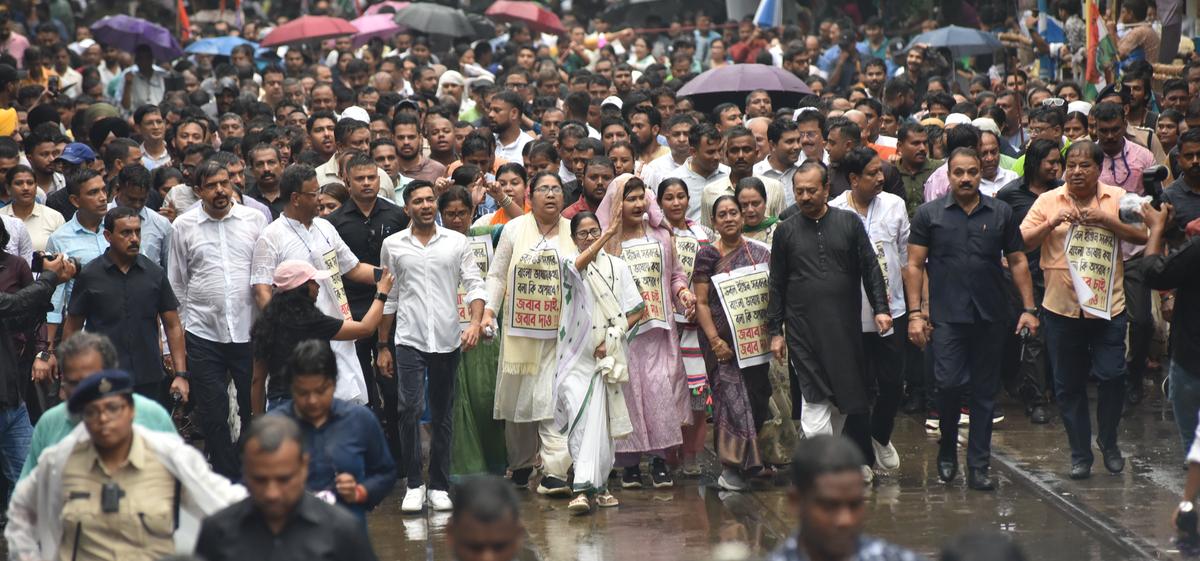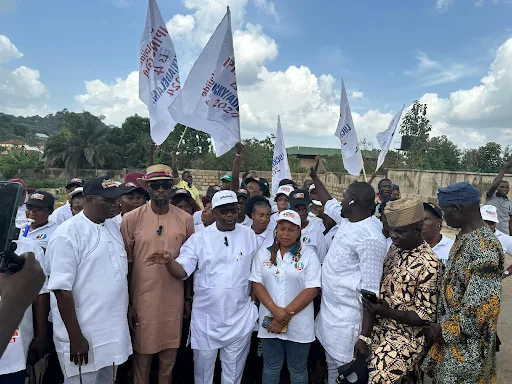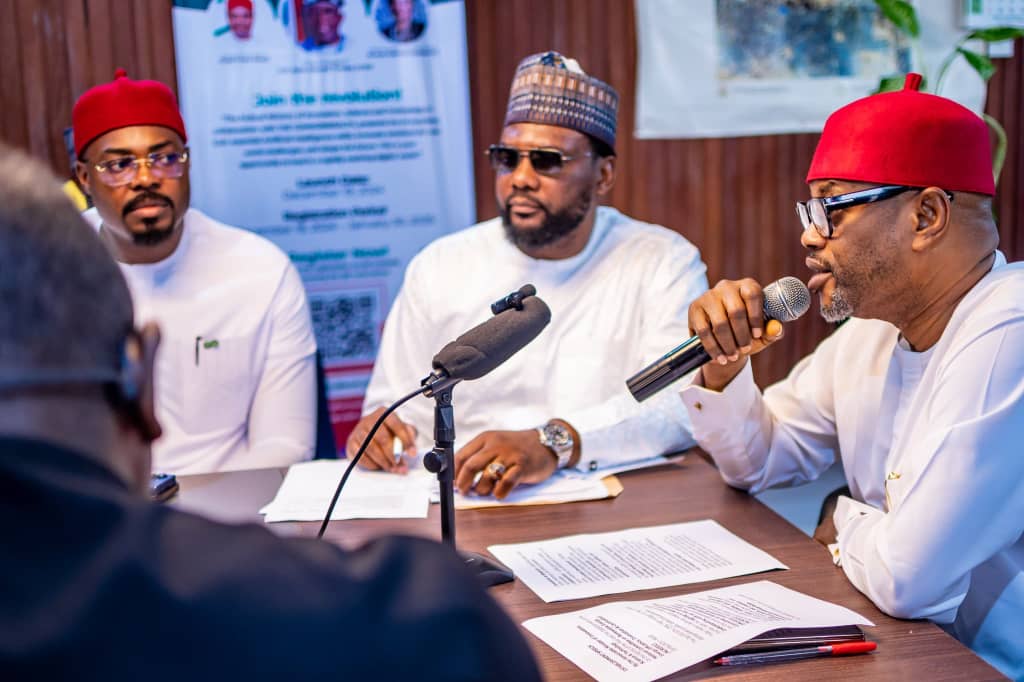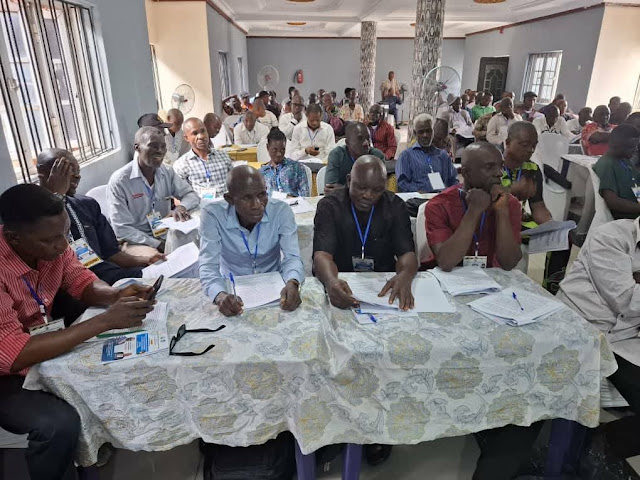PTI, July 16, 2025, Kolkata : Chief Minister Mamata Banerjee took to the streets of Kolkata on Wednesday afternoon to protest against the alleged harassment of Bengali-speaking people in BJP-ruled states. The protest, held in rain-drenched Kolkata, saw Mamata lash out at the BJP-led Centre, accusing it of having a policy that mistreats Bengali-speaking people across the country. She warned the saffron party of dire political consequences if they did not immediately halt such actions.
Banerjee alleged that the ruling dispensation at the Centre was “influencing the Election Commission of India” to push its political agenda across states. Speaking at a public rally after leading a protest march in central Kolkata, Mamata expressed her frustration over the harassment of Bengali-speaking people, particularly in BJP-ruled states.
“I will challenge the Central government notices which were surreptitiously sent to BJP-ruled states to harass Bengali-speaking people and detain them at the slightest suspicion,” Mamata claimed at the rally, which concluded at the Dorina Crossing in central Kolkata. “I am ashamed and disheartened at the Centre and the BJP’s attitude towards Bengalis,” she added.
Asserting her resolve to fight the BJP “inch by inch” if it tried to persecute Bengali-speaking people, Mamata declared that the saffron camp should be ready for a new round of “Khela Hobey” (the ‘game is on’ slogan coined ahead of the 2021 state elections) during the 2026 Assembly elections. “I have decided to speak more in Bangla from now on, hold me in detention camps if you can,” she stated, attacking the BJP.
Mamata highlighted that nearly 22 lakh migrant workers from Bengal work in other parts of the country and possess valid identity documents like Aadhaar, EPIC, and PAN cards. She made it clear that she would not tolerate any disrespect shown to these workers on flimsy grounds. “What right does the BJP have in harassing Bengalis like this, even arresting them and forcefully pushing them back to Bangladesh? Is West Bengal not part of India?” she asked.
Referring to the current situation, Mamata said, “Extreme situations call for extreme countermeasures.” She added, “I will say this in the simplest of words. We will not fight you physically. But if the BJP doesn’t put an end to its persecution policies immediately, then the Trinamool Congress knows how to make them stop.”
The protest march, which began at College Square in central Kolkata around 1:45 pm, saw senior leaders of the Trinamool Congress (TMC), including TMC national general secretary Abhishek Banerjee, joining Mamata as they led thousands of people in the rally. The march, spanning nearly three kilometers, was surrounded by tight security, with over 1,500 police personnel guarding the route. Vehicular traffic was diverted along multiple arterial roads in the central parts of the city due to the event.
The TMC has also organized similar demonstrations in district headquarters across the state. These protests were held just a day ahead of Prime Minister Narendra Modi’s scheduled visit to West Bengal. With less than a year remaining for the Assembly elections in the state, the TMC has ramped up its pitch over what it claims is a systematic pattern of linguistic profiling, unlawful detentions, and attempts to brand Bengali speakers as “illegal immigrants.”
The protests signal the thrust of the TMC’s campaign for the 2026 Assembly elections, with the party appearing to focus heavily on identity politics and grassroots mobilization. Mamata Banerjee’s emotional appeal for Bengali pride is likely to form the backbone of her electoral strategy, aiming to reconnect with voters through a campaign that highlights cultural identity and local issues.
Countering Mamata’s emotive rhetoric, Leader of the Opposition Suvendu Adhikari claimed that the entire “Bengali-asemita” campaign was being used to shield the presence of “Bengali-speaking Rohingyas and illegal Bangladeshi infiltrators.” Kolkata Mayor Firhad Hakim, who participated in the protest, dismissed Adhikari’s allegations, stating that they were merely attempts to please his superiors in Delhi. “His tactics will not work here,” Hakim said.









